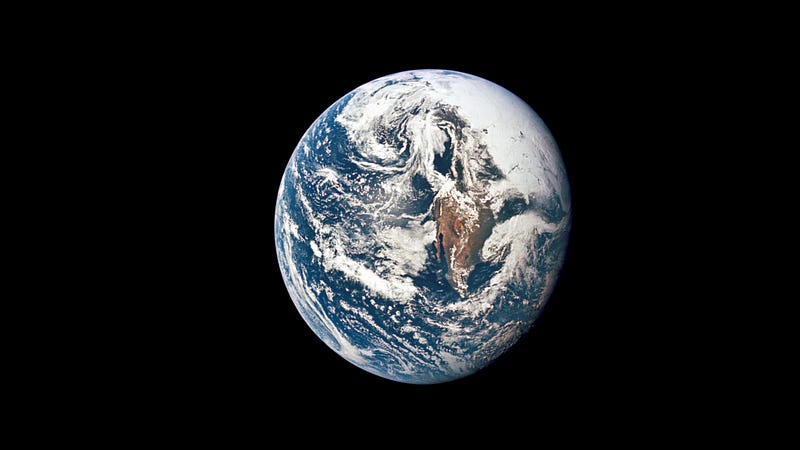# Analyzing Humanity: An Alien Perspective on Earth’s Dominant Species
Written on
Chapter 1: The Earth Mission
When I embarked on the Earth mission, many of my peers and superiors expressed doubts about my choice. I prefer to refer to this planet as Earth, or Tierra, rather than its technical designation XC17_0187B8, which seems far too sterile for such a quirky little world. In discussing the primary invasive species here, I will use the term "humans," as that’s how they identify themselves in their prevailing language.
Over the course of 237 solar cycles, I have observed various species displaying basic intelligence. My observations of cephalopods, particularly octopuses and cuttlefish, have been most fascinating. Although their aquatic nature limits their technological advancement, their intelligence suggests they could develop complex social structures if not hindered by the planet's only technological species: humans. Other intelligent aquatic species, like cetaceans, are apex predators and face little evolutionary pressure to enhance their intelligence. In contrast, cephalopods rely heavily on their wits to survive in a perilous environment. Among land species, rodents, especially rats, show potential for increased intelligence due to their adaptable physiology.
Overall, Earth, classified as a Class 7D planet, has maintained a commendable level of evolutionary diversity—at least until recently.
The rise of a non-mobile organism known as grass has significantly altered primary ecosystems, leading to unfortunate long-term effects. Grass exemplifies evolution through random genetic drift, occasionally resulting in advantageous traits that persist through generations. It is speculated that it took countless solar cycles for grass to outcompete previously dominant organisms, particularly trees. Grass burns swiftly in the planet's oxygen-rich atmosphere, allowing it to recover quickly after wildfires, which devastate trees. This cyclical process has allowed grass to dominate vast areas, further hindering the regrowth of trees.
Section 1.1: The Impact of Evolution
Through the mechanism of selection pressure, organisms adapt via random genetic changes until beneficial mutations accumulate, enhancing survival. Mobile species learned to consume grass, despite its high silica content, while smaller creatures developed adaptations to thrive within grasslands, resulting in new and diverse ecosystems over millions of solar orbits.
However, the triumph of grass over trees has had dire repercussions for Earth's other life forms. One particular primate species was forced to abandon its arboreal lifestyle for the savanna and, by mere chance, adapted to a vastly different environment. This species evolved into a highly invasive presence, wreaking havoc on ecosystems for tens of thousands of solar cycles.
Section 1.2: A Closer Look at Human Behavior
Despite their lack of intrinsic value and minimal measurable intelligence, humans present an amusing spectacle. Long ago, during our own technological infancy, we created small robotic cleaning devices intended to autonomously maintain cleanliness. However, due to their design flaws, these devices would often become stuck against obstacles, futilely attempting to free themselves until their power was depleted.
Humans mirror these early robotic cleaners in their behavior, although they lack the charm. Unlike our robots, which were eventually programmed to navigate around barriers, humans seem to revel in repetitive self-destructive actions, often to their detriment. Their instinctual tendency to act against their own interests is the basis for my recommendation to collect a few thousand specimens for study. Not only would they entertain our younger beings, but they would also serve as a cautionary example of the importance of critical thought.
Subsection 1.2.1: Living Conditions of Humans

Image credit: NASA
I can assure the Ethics Committee that there are no moral objections to utilizing humans in this manner. They are accustomed to confined living spaces, commuting in small metal boxes, and spending their leisure time in cramped quarters while staring at screens, often achieving no significant purpose. Therefore, they are well-suited to captivity.
With the majority of humans now significantly overweight, they prefer to remain immobile, as even minor physical exertion can cause discomfort. Additionally, their diet consists of unappetizing food that we would hesitate to feed even to less discerning creatures. Thus, we can sustain them on the remnants from our agricultural processes, provided we present it in a palatable, sugary form.
Section 1.3: Manipulating Human Compliance
Humans are inherently predisposed to accept whatever they are told by authority figures, regardless of how ludicrous those statements may be. To ensure total compliance, we can accompany our human